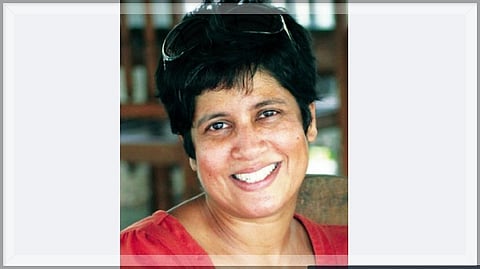

Sanjana Rishi, founder of Nindia Loungewear and Earth champion, recently shared a post about her horrific experience while travelling by the Mumbai Metro as well as other instances on social media where men and even teenage boys had made the most horrific remarks and lewd gestures about her. And this was not at late night hours, but at daytime in busy public spaces. What she was concerned about was the fact that she was raising a daughter, a toddler, now at an age where she was asking questions that needed an explanation. And these were instances where she too was also present and had heard these comments!
Therefore the question of how we raise girls, where men and boys even today have no sense of respect, courtesy and decency, is bearing down on us. Are we living in a country where the girl child has no chance to live in dignity? That her appearance and what she chooses to wear will always be dictated by men lurking in the shadows and what dirty remarks they are sure to hurl? Everyday we hear news about rape, abuse, domestic violence and murder too.
Today a lot of children are grappling with very difficult situations at home or school. A child may have lost one parent or could be an orphan or have parents who are separated. Some have parents that do manual labour, dig roads or work as domestic help. Some children have parents who are never around, they feel alone. Some are exploited. Some are left to fend for themselves. Children have rights too. Let us stand in solidarity with all children so that we can nurture with empathy, protect their rights and fulfil our collective responsibility to raise responsible citizens.
Nigel D’Souza, an artist from Bastora is quite vocal about what he has
experienced.
“Today in society, we see many adults and children with disabilities, like Autism, Dyslexia, ADHD, Cerebral palsy, physically challenged etc. being sidelined, treated differently, denied access to mainstream schools, not given jobs etc. Thankfully, not all of them are treated this way, but even though now our world is more inclusive, still we see this. Being differently abled means having a quality most people don’t have, but this could be a really good quality, maybe it could bring a positive change to society at large. Most of these people are capable. They also have a role to play and are an important part of our society like everyone else. We need to break stereotypes, and ensure equality and a fully inclusive India, and world for all like, include all these children in games, sports, etc. After all, everyone in the world has problems, and differences. All differences should be embraced, not thought as scary. Then we can truly progress socially and economically.”
Another student from Goa adds, “Today, while we're discussing our rights, let's talk about the most basic human right - the right to life. Which is taken away from the most vulnerable in society-the child in their mother's womb. The child that never gets a chance to live because they're ill timed or inconvenient, or they have mental or physical disabilities. While listening to the voices of minorities, let's pay heed to those that do not have a voice. Let's stand for life because each of us is special, unique and incomparable.
Aarya Mane, a young student from Kolhapur shares her thoughts on defining gender roles.
“Have you seen your brothers refusing to do domestic chores just because they are boys? Well, it has been a common case for centuries. Defining gender roles is the biggest obstacle to personal growth and reaching your fullest potential. Let's have no shame in doing all the activities that are expected to be done by the other gender. Because the epitome of true independence and self sufficiency starts from your home. So let's make it our goal to say no to gender
biases.”
Avni Vishnoi, a young Architect from Delhi adds, “Power lies with the people. I would like to reiterate that power truly lies with the people, as it should. We can all choose how to be part of the resistance, it can be through protest, through art, through conversations we choose to have in our homes, workspaces, cafes, public spaces. Also, choose conversations we don't want to be a part of or are called to lead. We can choose how to show up in society. The hope is to nurture the feeling for everyone. So, at this point I remember the story we used to read as children - it is easy to break one stick but difficult to break a bundle of sticks. Let us become that bundle. Let us uplift each other, support each other, ask for help and be the help. Wherever and however we can. Together, we can challenge the norms of society and strive towards having justice for all.”
Pundalik Naik another student is disturbed and says,“Today what we are seeing in society is that poor people are becoming poor and rich people are becoming richer. Is it because poor people are being exploited? Is it because no one really cares for the welfare of the underprivileged? A just society is one where fairness isn't a privilege of the rich and suffering for the poor, but it's a right which is equally accessible for all!”
“Where is our right to freedom of speech?” says a visibly agitated Aryan Busireddy, a student from Hyderabad. “When justice bends with the will of the majority, freedom of speech becomes a privilege, not a right. Social justice is all about listening to the singular voice that's suppressed.”
So let's speak up even if we are alone. The voice of truth, goodness and righteousness will always
prevail.
(Tallulah D’Silva is an Architect and silver
awardee of the Golden Door Award 2020 for truth and integrity.)